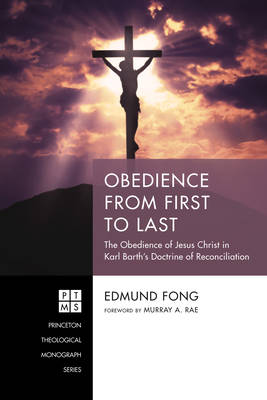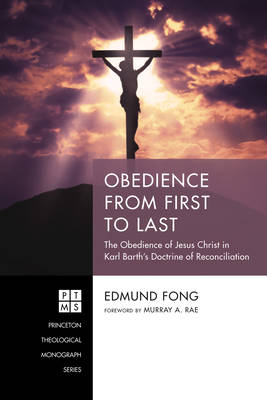
- Afhalen na 1 uur in een winkel met voorraad
- Gratis thuislevering in België vanaf € 30
- Ruim aanbod met 7 miljoen producten
- Afhalen na 1 uur in een winkel met voorraad
- Gratis thuislevering in België vanaf € 30
- Ruim aanbod met 7 miljoen producten
Zoeken
Obedience from First to Last
The Obedience of Jesus Christ in Karl Barth's Doctrine of Reconciliation
Edmund Fong
€ 62,45
+ 124 punten
Uitvoering
Omschrijving
Obedience from First to Last explores the theological significance of the obedience of Jesus Christ in Karl Barth's theology. It does this via a threefold consideration of, first, the nature of Jesus' incarnate obedience; second, the relation of that obedience to the obedience of the second triune person of the eternal Son; and third, the effects Jesus' obedience has on our own obedience. Barth not only affirms the pivotal role Jesus' obedience has within the economy of salvation, but by equating that obedience with that of the eternal Son's, Barth gives Jesus' obedience a pre-eminent place within the immanent being of Godself. The obedience of Jesus Christ is seen to have a co-participatory role in God's determination of his own divine being that arises from the primordial act of divine election. This notion bears on our understanding of freedom and obedience: as divine freedom is expressed in divine obedience, so it is with human freedom and human obedience.
Specificaties
Betrokkenen
- Auteur(s):
- Uitgeverij:
Inhoud
- Aantal bladzijden:
- 360
- Taal:
- Engels
- Reeks:
- Reeksnummer:
- nr. 242
Eigenschappen
- Productcode (EAN):
- 9781532683022
- Verschijningsdatum:
- 18/03/2020
- Uitvoering:
- Paperback
- Formaat:
- Trade paperback (VS)
- Afmetingen:
- 152 mm x 229 mm
- Gewicht:
- 485 g

Alleen bij Standaard Boekhandel
+ 124 punten op je klantenkaart van Standaard Boekhandel
Beoordelingen
We publiceren alleen reviews die voldoen aan de voorwaarden voor reviews. Bekijk onze voorwaarden voor reviews.











